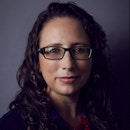Collaborations in the Extreme: The Rise of Open Code Development in the Scientific Community
- Speaker
-
 Kelle Cruz, Ph.D.Associate Professor of Physics and Astronomy, Hunter College/CUNY
Kelle Cruz, Ph.D.Associate Professor of Physics and Astronomy, Hunter College/CUNY
Presidential Lectures are free public colloquia centered on four main themes: Biology, Physics, Mathematics and Computer Science, and Neuroscience and Autism Science. These curated, high-level scientific talks feature leading scientists and mathematicians and are intended to foster discourse and drive discovery among the broader NYC-area research community. We invite those interested in the topic to join us for this weekly lecture series.
By clicking to watch this video, you agree to our privacy policy.
The internet is changing the scientific landscape by fostering international, interdisciplinary and collaborative software development. More than ever before, software is a crucial component of any scientific result. The ability to easily share code is reshaping expectations about reproducibility—a fundamental tenet of the scientific process. Furthermore, in this new landscape, scientific communities develop open source software, mostly built and maintained by unpaid volunteers, upon which both scientists and industry increasingly depend upon for day-to-day operations.
In this lecture, Kelle Cruz will briefly provide the backstory of how these shifts have come about, describe some of the most impactful open source projects, and discuss efforts currently underway aimed at ensuring these community-led projects are sustainable and receive support. She will conclude with a discussion of the implications of these shifts for science education and academic science.
